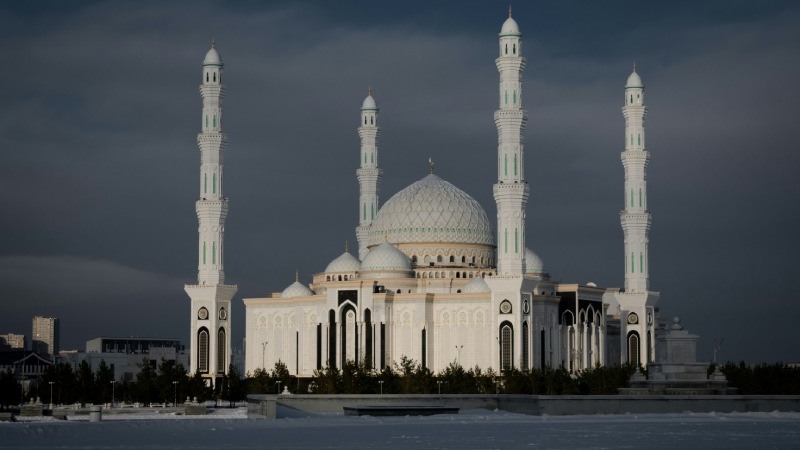
In January 2022, Kazakhstan found itself at the center of one of the most serious crises in its modern history — an attempted coup. The protests, which began as peaceful demonstrations against rising gas prices, were exploited by extremist groups and criminal elements seeking to destabilize the country. President Kassym-Jomart Tokayev managed to prevent the escalation of the crisis and preserve the state’s integrity. These events had far-reaching consequences for Kazakhstan and global politics, underscoring the strategic importance of this Central Asian country.
Protests as a Cover for Extremists
The crisis began on January 1, 2022, with peaceful protests triggered by socio-economic issues and a hike in liquefied gas prices. However, it later became clear that the protests were pre-planned: the gas price increase was part of a carefully crafted coup scenario. By January 4, protests in Almaty turned violent. Terrorist and extremist groups, operating under the guise of protesters, organized attacks on government institutions and strategic facilities like airports and TV towers. The targeted seizure of such key locations, like the TV tower and Almaty Airport, was a clear sign of a power grab attempt. This indicated a high level of coordination among the terrorists aiming to destabilize the country.
The militants, acting with obvious coordination, began taking control of infrastructure and weapon stores, managing to steal over 3,000 firearms and ammunition. The terrorists appeared to be battle-ready: they wore turbans, military vests, and spoke languages unfamiliar to locals, which were neither Kazakh nor Russian. Residents could not understand what they were saying, heightening suspicions of foreign involvement and organized conspiracy. These groups attacked police stations, government buildings, and ambulances, as well as fire engines on city streets. The first casualties among civilians were police officers and National Guard soldiers, who were killed by the terrorists. Both law enforcement officers and civilians suffered losses in this violent upheaval.
Moreover, militants took the bodies of their dead comrades from morgues to conceal the scale of their presence and actions. This reinforced the impression of their high level of organization, planning, and coordination.
Amid these events, there were disturbing reports of violence against medical staff and patients in hospitals. In some instances, terrorists committed assaults within medical facilities. Doctors were forced at gunpoint to operate on wounded terrorists, who were later taken away by their comrades, worsening an already chaotic situation.
Social media played a critical role in spreading terrorist propaganda, serving as a communication and coordination channel for militants. These networks featured calls for establishing a caliphate within Kazakhstan, fueling public fear and the sense of threat posed by radical Islamist groups.
Tokayev’s Actions: Defending the State and the People
At this critical moment, President Tokayev showed resolve by ordering armed forces to open fire on armed militants. However, the order to use lethal force was accompanied by a clear directive to shoot only at those who were armed, aiming to avoid harm to peaceful protesters and minimize damage. This order was necessary to quell the violence and prevent a complete breakdown of law and order. On the night of January 6, an anti-terrorist operation was launched, with Kazakhstan’s security forces playing a decisive role in stabilizing the situation. Throughout the crisis, over 4,000 people were injured, and more than 200 lives were lost.
Tokayev not only suppressed the insurgency but also launched large-scale reforms aimed at strengthening security institutions and increasing transparency in the country’s governance system. Among those convicted for involvement in the January events were more than 1,200 individuals, many of whom were later pardoned.
However, the true shock to the nation came from treachery within the system. Karim Massimov, head of the National Security Committee, was found complicit in the conspiracy. While briefing Tokayev on the events, he deliberately misrepresented information regarding the terrorist threat and the number of terrorists to destabilize the situation and encourage Tokayev to flee the country. Massimov and his allies in the Ministry of Defense, who had collaborated with criminal groups, were arrested and convicted of treason.
The Geopolitical Significance of Kazakhstan
Kazakhstan is one of Central Asia’s key countries, and its stability is crucial not only for the region but also for global politics. Following the Russian invasion of Ukraine, Kazakhstan’s role in the global economy significantly increased. Amid international sanctions against Russia, Kazakhstan’s trade transit volume rose tenfold, with foreign trade turnover in the first quarter of 2024 amounting to $31.2 billion. Key partners include Italy, France, Germany, China, and Russia.
Kazakhstan’s economic and political stability plays a critical role in maintaining the regional balance of power. The fall of Tokayev’s regime could create a power vacuum that hostile forces might exploit to alter the country’s political direction. This would shift the region’s geopolitical landscape, heightening tensions.
Kazakhstan in a Multipolar World
Following the 2022 crisis, Kazakhstan continued its path toward strengthening its sovereignty and pursuing an independent foreign policy, navigating between Russia, China, and the West. President Tokayev skillfully employs a multipolar approach, developing economic ties with all major global players, thus promoting the country’s sustainable development amid global turbulence. However, the lessons of January 2022 remain pertinent: Kazakhstan’s internal stability cannot be taken for granted.
Today, as Kazakhstan continues to define its role in the global economy and politics, its strategic significance only grows. Balancing interests between East and West, ensuring energy supply stability, and controlling transport corridors all make Kazakhstan an essential element of global security and stability in Central Asia.
In conclusion, Tokayev’s actions in January 2022 saved the country from a potential collapse, and his forward-thinking policies have helped Kazakhstan strengthen its position on the international stage.